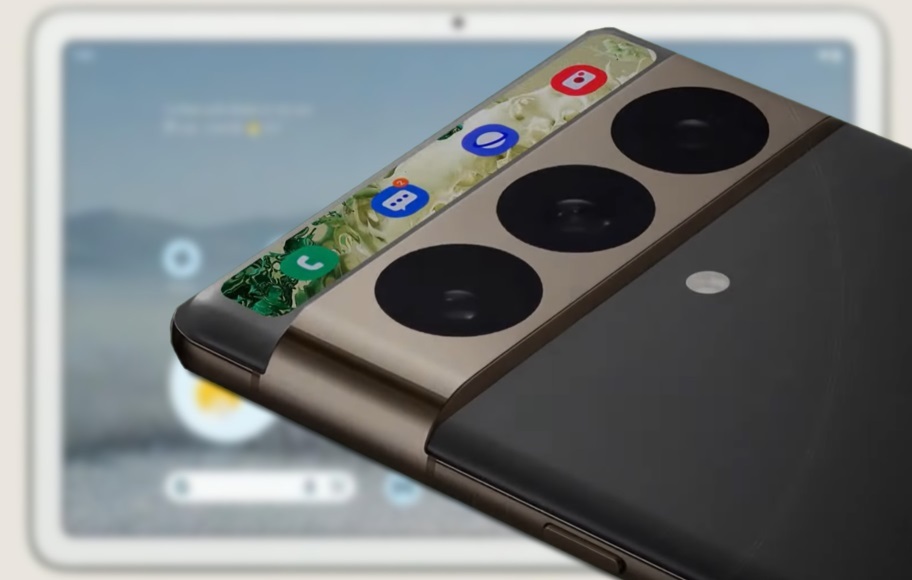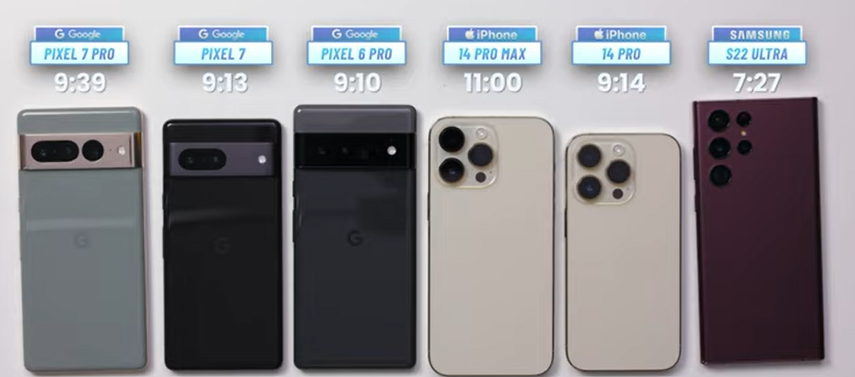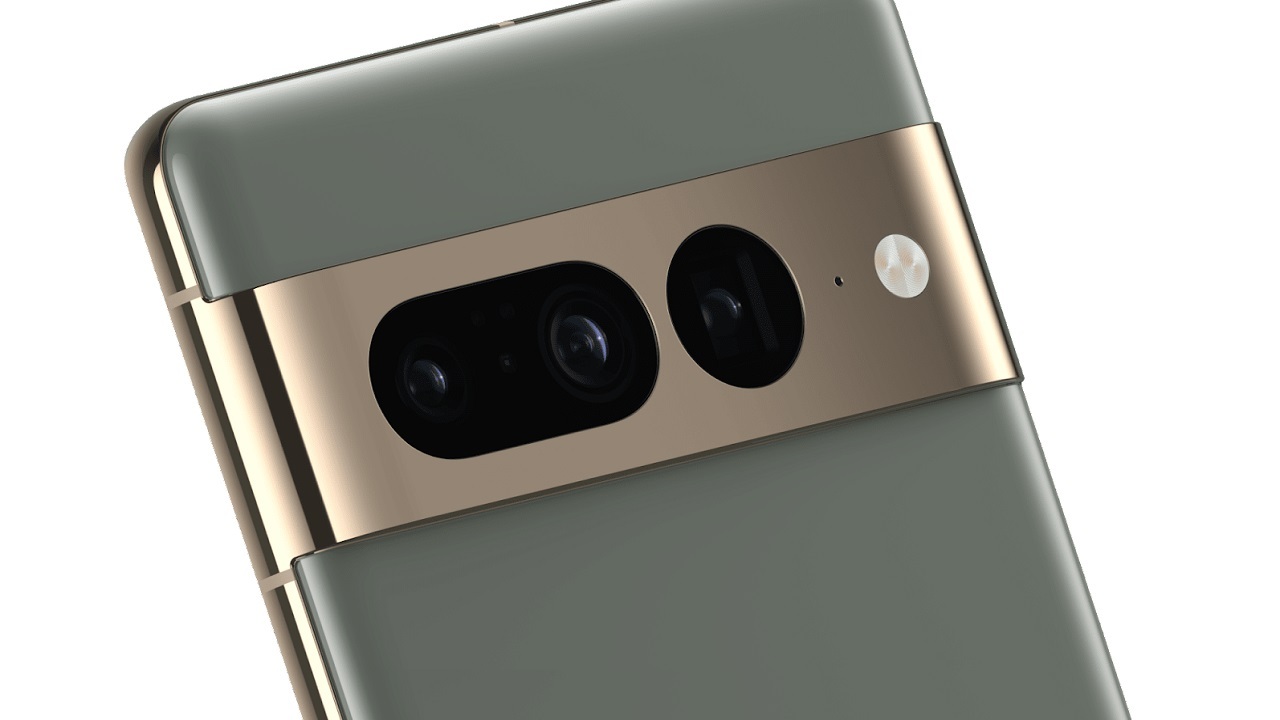
Image: Google Google has announced its latest lineup of Pixel phones, the Pixel 10, Pixel 10 Pro, Pixel 10 Pro XL and Pixel 10 Pro Fold. The four new devices feature some camera updates, upgraded Qi charging and, as should be expected, plenty of AI-related features.
Pixel 10 series cameras
The Pixel 10 Pro.
Image: Google
The most notable change to the Pixel lineup's cameras is the addition of a telephoto camera on the Pixel 10. The base model Pixel has traditionally only offered two cameras (wide and ultrawide), so this is a bump for that device. It also gives it an edge over the base iPhone, which only features a wide and ultrawide camera, and puts it on par with the Samsung Galaxy.
However, to fit that third camera, Google made some substantial sacrifices. First, the main camera was downgraded. The Pixel 9 used a 50MP 72mmbudget-focused Pixel 9a.
The ultrawide camera on the Pixel 10 also gets a significant downgrade. The Pixel 9 features a 50MP ultrawide camera with an F1. 68 aperture and 24mm
Pixel 10
Pixel 10 Pro/ Pro XL
Pixel 10 Pro Fold
Wide (main)
Sensor
48MP
Type 1/2 (30. 7mm
50MP
Type 1/1. 3 (72mm
48MP
Type 1/2 (30. 7mm
Aperture
F1. 7
F1. 68
F1. 7
Field of view
82°
82°
82°
Ultrawide
Sensor
13MP
Type 1/3. 1 (16. 1mm
48MP
Type 1/2. 55 (23. 5mm
10. 5MP
Type 1/3. 4 (13mm
Aperture
F2. 2
F1. 7
F2. 2
Field of view
120°
123°
127°
Telephoto
Sensor
10. 8MP
Type 1/3. 2 (15. 5mm
48MP
Type 1/2. 55 (23. 5mm
10. 8MP
Type 1/3. 2 (15. 5mm
Aperture
F3. 1
F2. 8
F3. 1
Field of view
23°
22°
23°
The camera specs for all four phones. The Pixel 10 Pro and Pixel 10 Pro XL share camera specs.
The other Pixel models all keep the same specs as the previous generation. However, Google says it made improvements to color, focus, detail, noise, zoom, portrait mode and more across all devices, promising better image processing across the board.
Another noteworthy addition is compatibility with the Coalition for Content Provenance and Authenticity (C2PA). Google says it is the first phone with C2PA Content Credentials built in, allowing for secure on-device metadata. It will record if AI is used at the time of image creation or during the editing process, and also specify if non-AI tools were used.
The Google Pixel 10.
Image: Google
On the video front, the Pro models are both capable of 8K 24/30p video or up to 60p at 4K. That isn't native 8K video, though. Instead, it's a result of Google's Video Boost mode, which uses cloud-based AI processing to upscale to 8K and improve lighting, color, dynamic range and stabilization while reducing noise and grain. Google does say, however, that it improved the optical stabilization on the main camera with the Pro models, so you should get smoother video even without AI. The Pixel 10 tops out at 4K 60p video and does not get the benefit of Video Boost.
Additionally, the Pro models offer "Pro Res Zoom" up to 100x (the Pixel 10 maxes out at 20x). Google says it relies on a combination of cropping and generative AI using the phone's Tensor G5 chip to refine details. Google also specified that it's best used on landscapes and landmarks, but special tuning is applied when people are in the frame to avoid any odd results. The Pro models also provide a High-Res and High-Res Portrait Mode for images up to 50MP.
The Google Pixel 10 Pro Fold.
Image: Google
Unsurprisingly, there are many additional AI-related features for the cameras on all four devices. That includes the Camera Coach, which is powered by Gemini models built into the camera. The coach will help guide your framing and composition and suggest changes like getting your friend's attention. There's also a "Get Inspired" option that will suggest completely new shots and guide you through how to create them.
The Auto Best Take feature can automatically find and combine group photos to make sure everyone looks their best in one shot. That builds on the previously released 'Best Take' tool, which required some manual selection of which shots you wanted to combine. Google improved the Add Me feature for adding the photographer to group shots, promising better results with bigger groups. There's also a Guided Frame tool that describes what's on the screen to help blind and low vision individuals take photos more confidently.
Pixel 10 series hardware and build
The Pixel 10 series sees an upgrade to the Tensor G5 processor, which Google says is the "biggest leap in performance yet. " It also says that Tensor G5 benefits from a Tensor Processing Unit (TPU) that is up to 60% more powerful for on-device AI-reliant tasks. Additionally, Google claims the CPU is, on average, 34% faster.
Pixel 10
Pixel 10 Pro
Pixel 10 Pro XL
Pixel 10 Pro Fold
Display
6. 3" Actua
6. 3" Super Actua (LTPO)
6. 8" Super Actua (LTPO)
External: 6. 4" Actua
Internal: 8" Super Actua Flex display
Brightness
Up to 2000 nits (HDR) and
up to 3000 nits (peak
brightness)
Up to 2200 nits (HDR) and
up to 3300 nits (peak
brightness)
Up to 2200 nits (HDR) and
up to 3300 nits (peak
brightness)
External: Up to 2000 nits (HDR) and up to 3000 nits (peak brightness)
Internal: Up to 1800 nits (HDR) and up to 3000 nits (peak brightness)
Dimensions and weight
152. 8 x 72. 0 x
8. 6mm (6. 0 x 2. 9 x 0. 3")
204g (7. 2oz)
152. 8 x 72. 0 x
8. 6mm (6. 0 x 2. 9 x 0. 3")
207g (7. 3oz)
162. 8 x 76. 6 x
8. 5mm (6. 4 x 3. 0 x 0. 3")
232g (8. 2oz)
Folded: 155. 2 x 76. 3 x 10. 8mm (6. 1 x 3. 0 x 0. 4")
Unfolded: 155. 2 x 150. 4 x 5. 2mm (6. 1 x 5. 9 x 0. 2")
258g (9. 1oz)
Memory and storage
12 GB RAM
128 GB / 256 GB
16 GB RAM
128 GB / 256 GB / 512 GB
16 GB RAM
256 GB / 512 GB
16 GB RAM
256 GB / 512 GB
Wireless charging
Up to 15W, Qi2-certified
Up to 15W, Qi2-certified
Up to 25W, Qi2. 2-certified
Up to 15W, Qi2-certified
All of the new devices feature Corning Gorilla Glass Victus 2, with the exception of the interior display on the Pixel 10 Pro Fold, which uses Ultra Thin Glass. They also all offer an IP68 rating for dust and water resistance, including the 10 Pro Fold, which is a first for a foldable phone. The Galaxy Z Fold 7 offers an IP48 rating, but that's the closest to what the Pixel 10 Pro Fold provides. Additionally, all models include seven years of OS, security and feature updates.
All of the Pixel 10 lineup offers IP68 ratings.
Image: Google
Google says each device in the Pixel 10 series offers up to 30-plus hours of battery life. Additionally, in Extreme Battery Saver mode, Google promises up to 84 hours from the Pixel 10 Pro Fold and 100 hours from the other phones in the lineup. They all support fast charging, though the Pro XL gives the most substantial boost on that front with a promised 70% in 30 minutes with support for 45W chargers. All of the new models are compatible with wireless charging and gain support for Qi2 (and Qi2. 2 for the Pro XL), allowing for magnetic alignment similar to Apple's MagSafe. That's an upgrade from the previous generation's Qi1 support.
The other notable change is that Google upgraded the speakers in the Pro XL. It says the new speakers are the loudest and most powerful of any Pixel phone.
The Pixel 10 comes in more vibrant colors than the Pro models. From left to right: Indigo, Obsidian, Lemongrass and Frost.
Images: Google
Less substantial, but still exciting, is that there are new color options. The Pixel 10 comes in Frost (pale blue), Indigo (blue), Lemongrass (yellow-green) and Obsidian (dark gray). Those hoping for a vibrant color on their Pro model may be let down. The three Pro models are all available in Porcelain (off-white), Obsidian, Moonstone (bluish-gray) and Jade (pale green).
Availability
The Pixel 10 series phones will be available for pre-order on August 20. The Pixel 10 starts at $799, the Pixel 10 Pro starts at $999 and the Pixel 10 Pro XL starts at $1199.
. dpreview.com2025-8-20 19:00









